- People
- Research
- Graduate
-
Undergraduate
- Prospective & Transfer Students
- General Chemistry Options
- Policies
- Tutors
- Pre-Health
- Undergraduate Advisors
-
Chemistry Major
- Process for Declaring a Major, Minor, DMP, or ACS Certification
- B.A. in Chemistry
- B.S. Chemistry
- B.S. Specialization in Biochemistry
- B.S. Specialization in Chemical Education
- B.S. Specialization in Chemical Physics
- B.S. Specialization in Environmental Chemistry
- B.S. Specialization in Materials Science
- B.A./M.S. or B.S./M.S. in Chemistry ("3+1" Degree Option)
- Undergraduate Research
- Distinguished Majors Program
- Minor
- Forms
- Study Abroad
- Undergraduate FAQs
- Undergraduate Resources
- Safety
- Seminars
- Newsletter

Astrochemistry at UVa covers a variety of research topics involving the chemistry that occurs in interstellar clouds of gas and dust

With roots in analytical chemistry, the bioanalytical field aims to quantify and detect varying small and macromolecules. Quantification and detection are crucial for researchers to identify and better understand molecules present in their sample of interest.
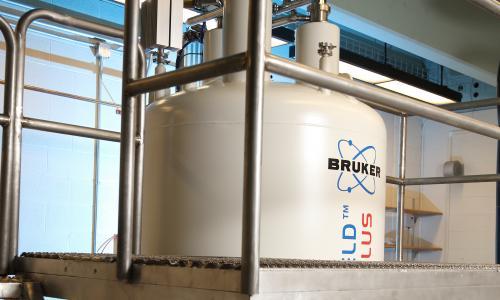
Biophysical Chemistry seeks to explain biological mechanisms using a combination of chemical and physical concepts and techniques. Cells have a highly dynamic and complex environment composed of varying biomolecules with specific functions that we seek to understand.

The study of catalysis is concerned with developing and understanding chemical processes that use a catalyst, a molecule that makes a desirable chemical reaction occur more rapidly without being consumed.

The field of chemical biology focuses on the use of chemical approaches, particularly synthetic chemistry, to answer biological questions as well as to develop modulators of protein function.
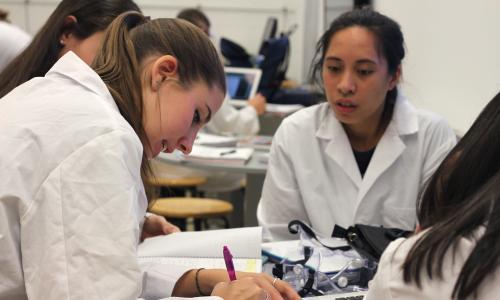
Chemical education researchers at UVa focus on transforming STEM instruction at the undergraduate level by studying faculty and teaching assistants.
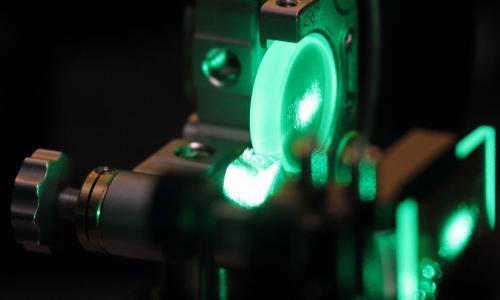
Molecular detection and quantification are integral to an improved understanding of biological and physiological processes.
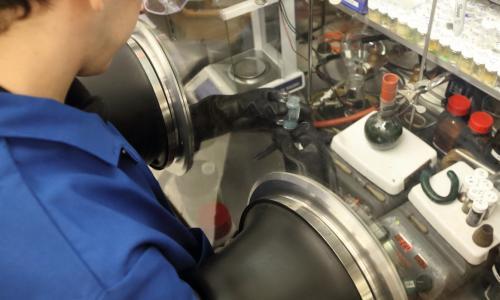
The field of Inorganic Chemistry broadly focuses on the study of inorganic compounds, which are generally defined as compounds that are primarily made up of non-carbon elements.

The fields of Nanoscience and Materials Chemistry are rapidly expanding and multidisciplinary areas of research with diverse applications in biomedicine, energy conversion and storage, optics, electronics and magnetism, among others.
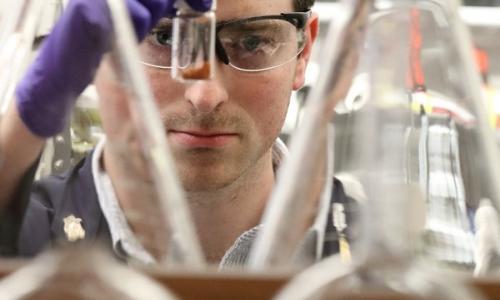
The study of organic chemistry focuses on creating chemical compounds that impact our lives as pharmaceuticals, agricultural products, materials, and polymers, using carbon as the central element.
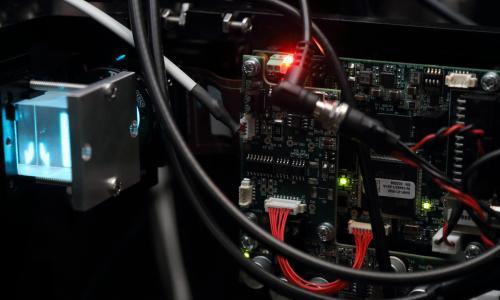
Surface Chemistry focuses on understanding chemical reactions on a molecular level at the interface of two phases of matter, e.g. gas molecules reacting with a solid metallic surface.

Theoretical and computational work at UVa makes use of advanced analytical and numerical tools to investigate phenomena of interest in fields ranging from biology to materials science to astrochemistry.